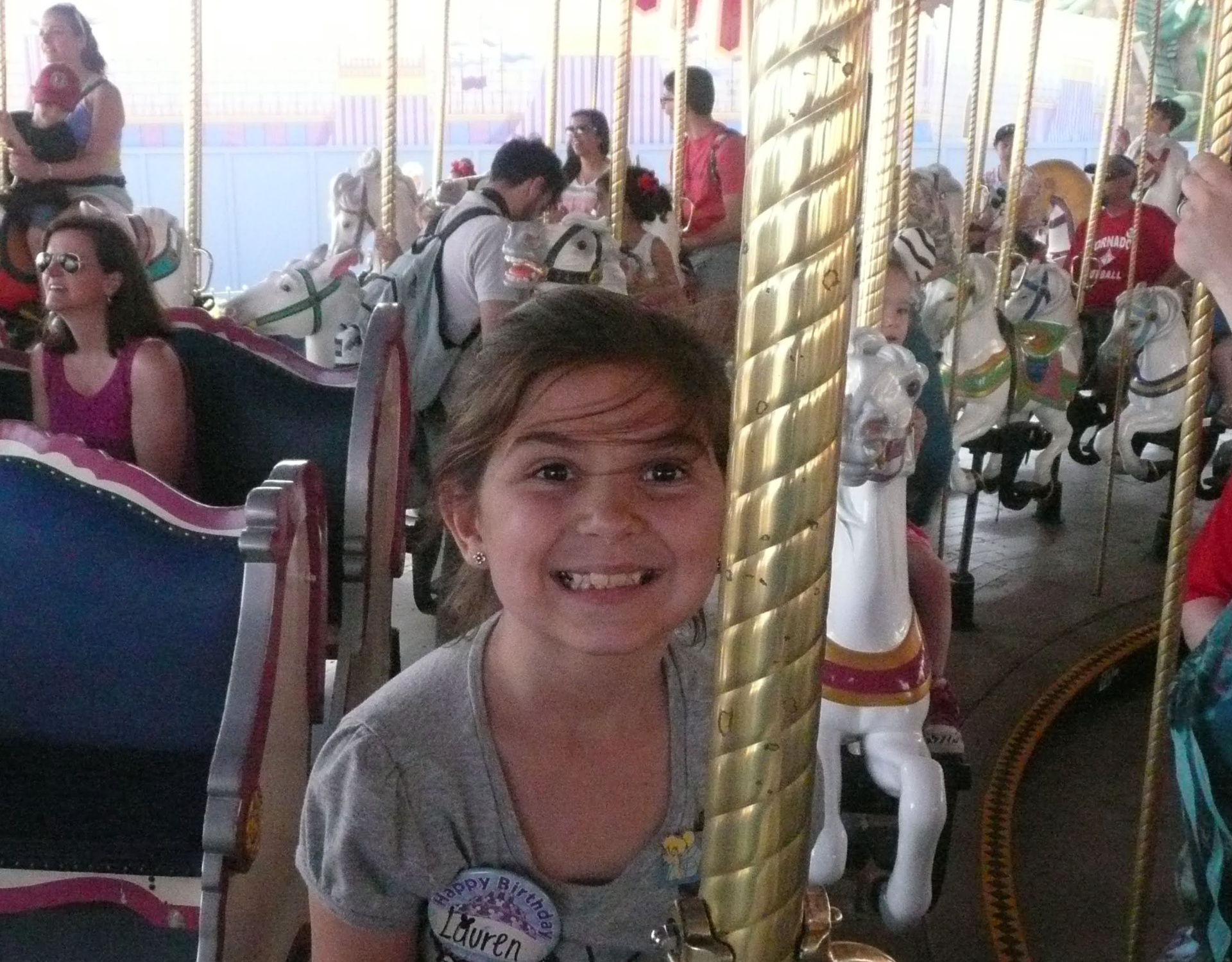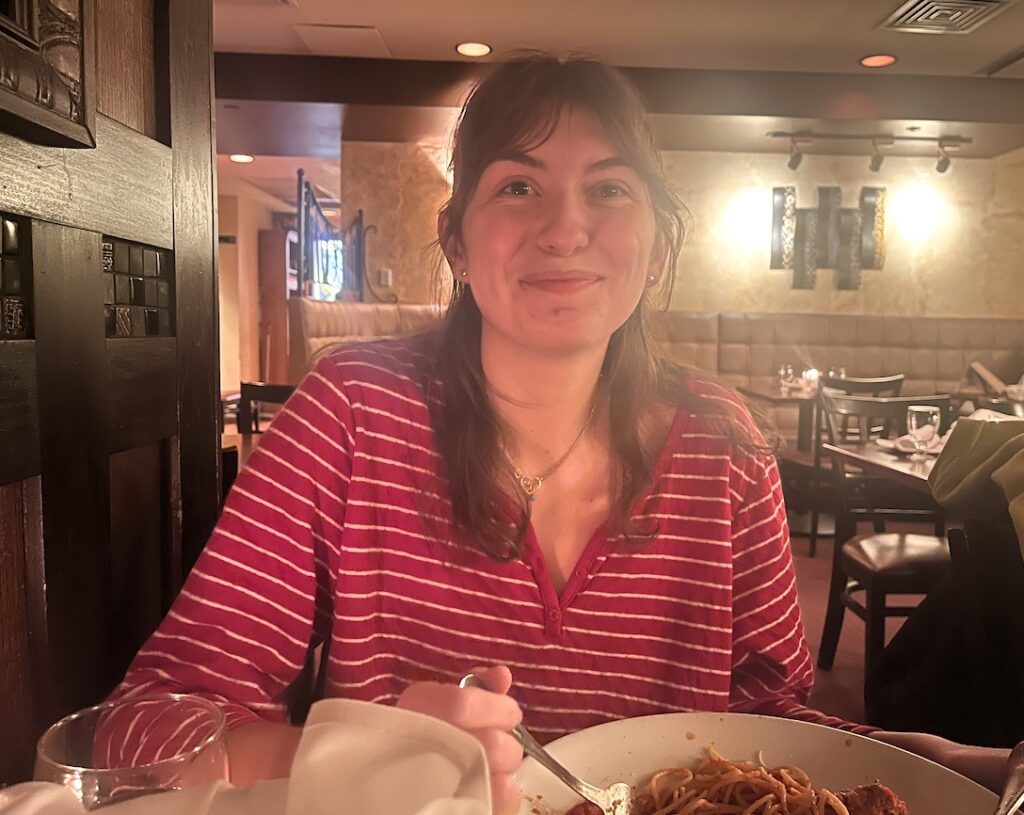
Introduction
This project is an interview between my girlfriend and me discussing how she came to realize the hypocrisy and redundancy within the religion she was raised in and how her character defies standards set out for her. She explores the intricacies of what it means to displease others in an attempt to live authentically and the nuances of interpersonal relationships and constructs that limit ideas.
She explores her complex relationship with some resentment for her religious background being so completely intertwined with her life, especially her childhood, and her appreciation and love she has for her early life.
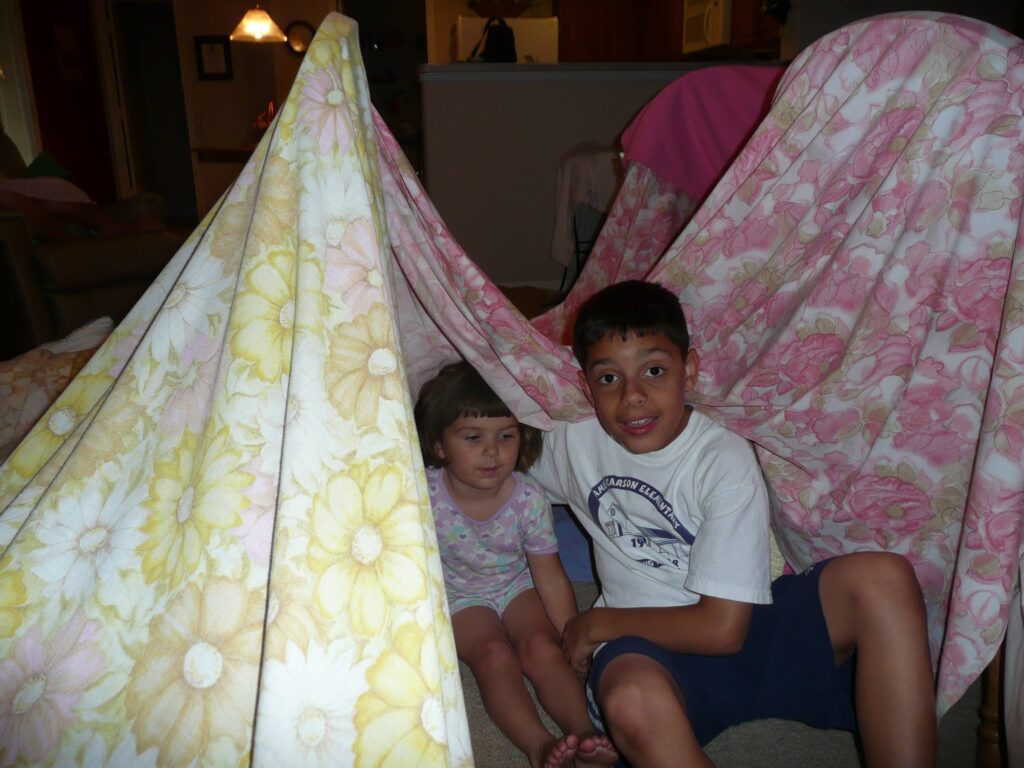
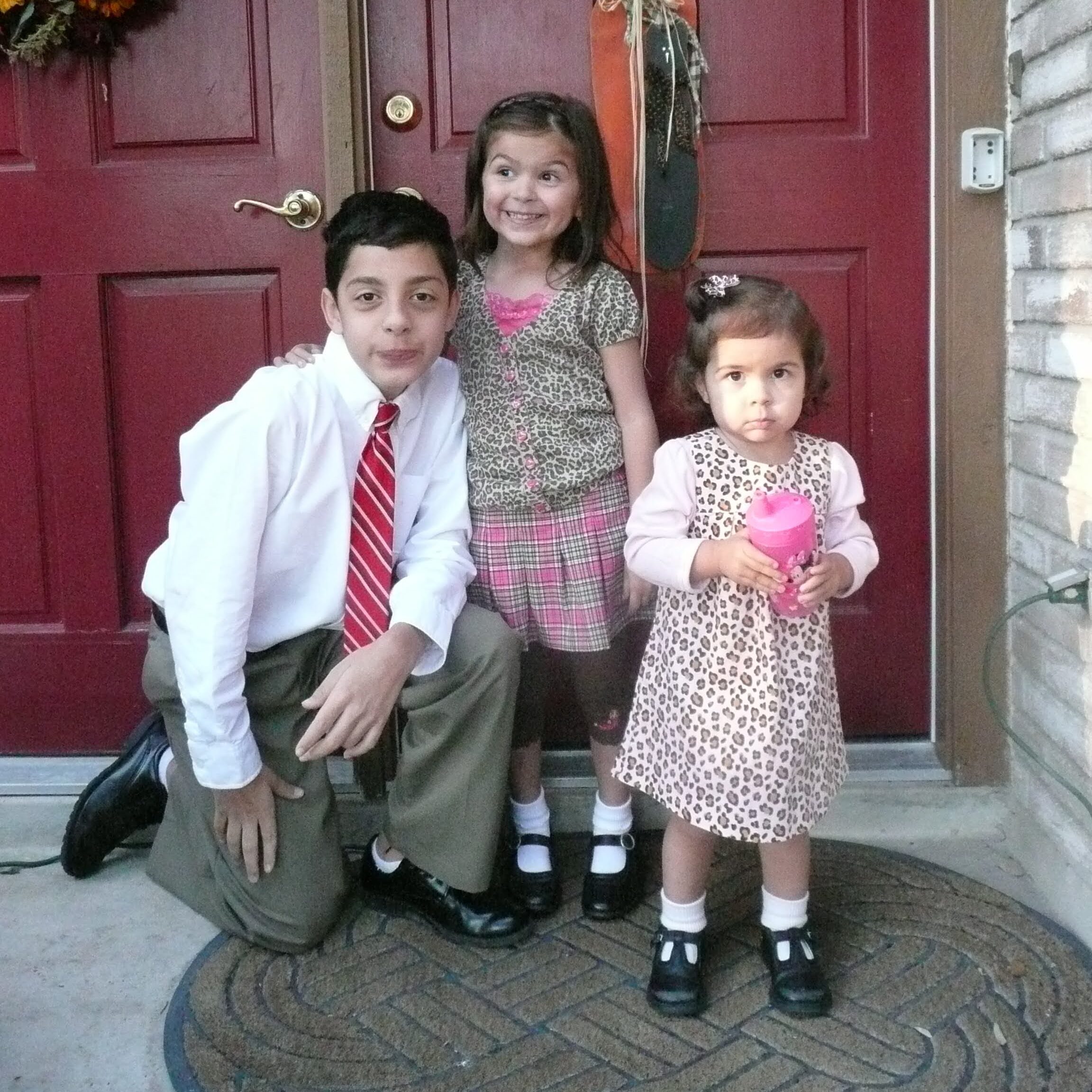
Transcript
J’Lauren:
I’ve known Lauren, for almost ten years. Seven of those years, I’d never known that Mormonism was a part of her life, in any capacity. It was something that I never realized was so central to someone I loved. But here she was. And even for the three years that I did know, the person that I had become so close to felt so far removed from that part of her life, despite still being entrenched in the church.I was always curious why that was. So I asked.
Lauren:
Hi, my name is Lauren. I am 19 years old. I am from San Antonio, Texas and his girlfriend. I am in Jay’s room. Uh, That’s all I have to say about myself right now.
J’Lauren:
And so today, I just wanted to ask you about your religion.
Lauren:
Not necessarily my religion. My parent’s religion. So my parents are both Mormons. My mom, she converted to the church when she was about my age. And my dad was born and raised in church. So they have a pretty strong foundation in the church. They believe in it a lot. But my siblings and I, we kind of are as into it as they are, and it seems to bother them because they have such a strong foundation in it, and they want us to as well, but we just don’t. So.
J’Lauren:
What was your relationship like growing up with Mormonism.
Lauren:
Uh I never really had the best relationship with it just because it was honestly boring when I was a kid. But, I started becoming sentient and I was like ten, 11 and I started reading about, I guess, the history of the church and the, the things that Joseph Smith had done and the things, a lot of, important people in the church had done. And it kind of just turned me off to the whole idea of the church. And I think it’s really interesting that people are only starting to leave the church now because the people in the church, like 20 years ago, they didn’t have access to any literature that wasn’t church proofed because everything else was secular.
J’Lauren:
And so you sort of like you said you were turned off to because of the things you were reading and that was from the internet or like, what were you reading?
Lauren:
It was more so, well, I remember learning about it in probably eighth grade, eighth grade history. And then, that was the first time that I had heard about Mormons and not Mormon Church. That’s the first time I heard about the pilgrimage from New York to Utah. In a not Mormon sense I guess. And it was more factual rather than everything was based around faith. And I started like looking into it from less biased. By less biased, I mean, anything that’s not the church website. LDS.org seems to be the only way to learn about the church for the people involved in the church. And that was the first time that I realized there was more to learn about the church. That wasn’t just on the church’s website.
J’Lauren:
Before you were able to read stuff about it, like outside of what you were given from them were you, like you said, you didn’t really like it because it was boring, but like, was it ever more than that, like any bigger reason that you didn’t really.
Lauren:
From what I can remember, the biggest thing that stood out to me when I was little, before I really had an understanding of the church, like before I could really read about it, was being baptized because I got baptized when I was eight, and I just remember thinking I could never do anything bad again, which is really sad. And I would just like cry about it because, you know, when you go to primary and you go to Sunday school after the sacrament meeting, you’re really just taught obedience is what I remember the most from being a kid. Is this a lot of learning, obedience? Be obedient to your parents. Be obedient to the Ten Commandments. Be obedient, having like obedience, like drilled into my brain and then going and getting baptized and thinking oh I have to be obedient the rest of my life. And if I stray away from anything, then that’s it. I am not going to be able to be saved. That was a lot for me at eight, and I know that’s definitely not what it was, but, there was more to it. It’s just that was my understanding of it, and I wish I had someone to explain to me that I didn’t have to be perfect for the rest of my life.
Lauren:
Um I got over. So it’s okay.
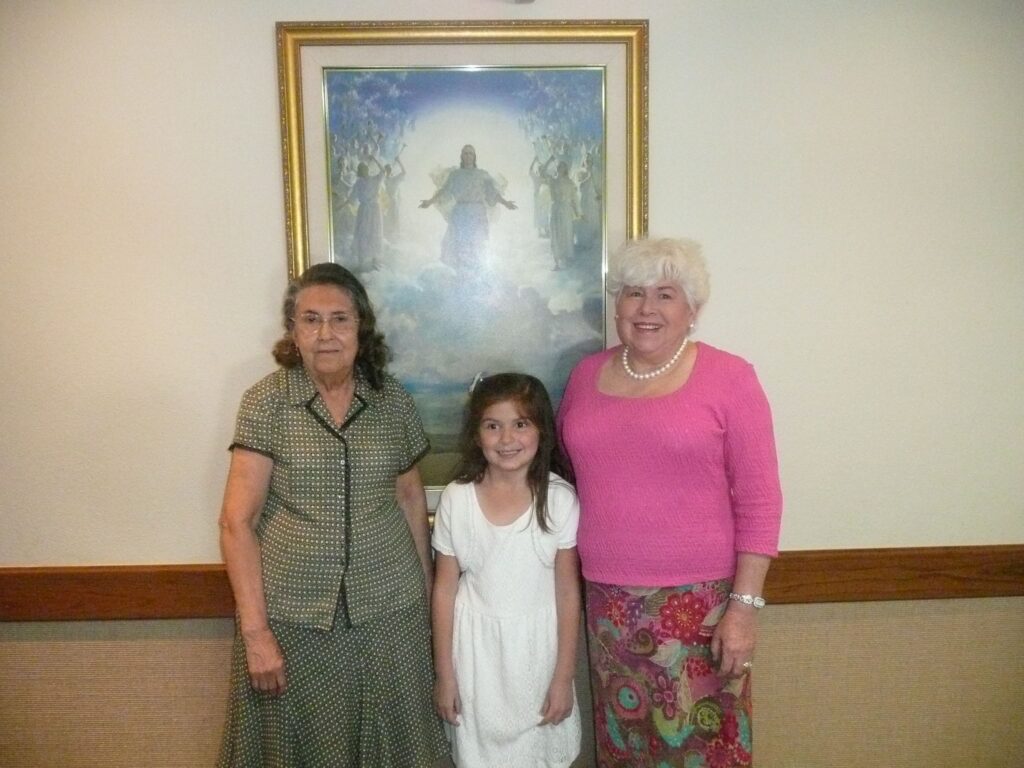
[ Clip of local San Antonio Tabernacle Choir singing “Hallelujah” ]
J’Lauren:
Did you feel like you weren’t connected to the religion? Or were you just like, this is scary?
Lauren:
I don’t think it was so much scary as, like, I felt connected to it because I was scared of it. I. I felt connected, like, through fear. And I felt that way for so long. Probably up till I was, like 15. Like the, the only connection I had to the church was through, I guess, just like fear of what would happen if I left and fear of what would my afterlife be like if I had left. So I think that I did have a connection to it, but it wasn’t a positive connection. It was mostly fear because I had been mostly taught obedience
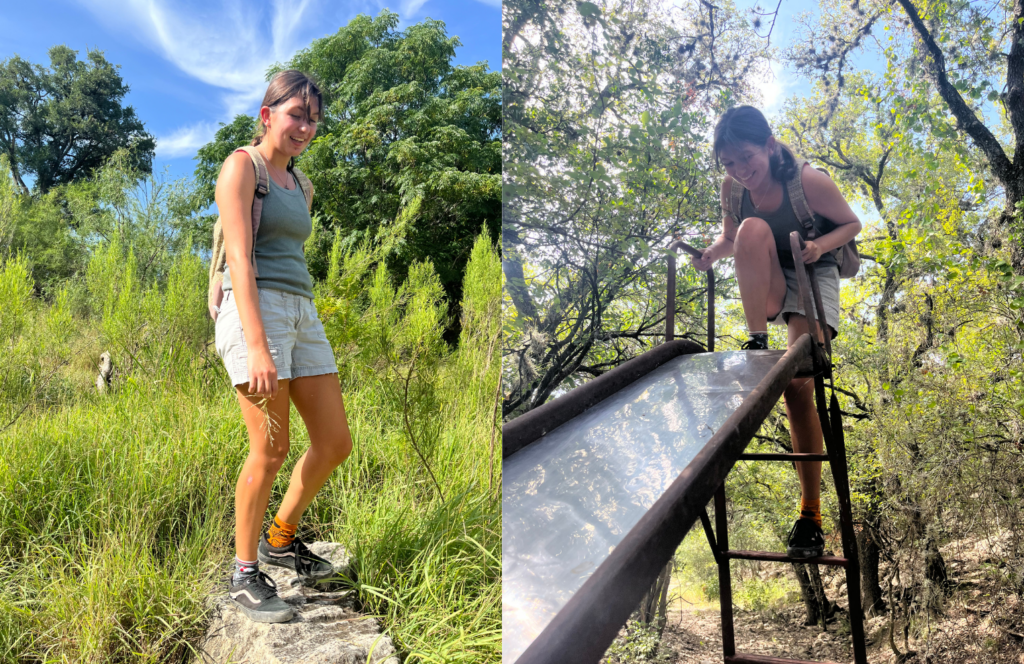
I think. So camp was always a big thing. Every summer I was 12 years old. The girls camp was it was it was such a weird. It kind of had me have like a really weird relationship with the church because I enjoyed, like spending time with my friends and my cousins. It was awesome that first year because I actually that was the only time I felt like, like okay around people. I felt so safe around those girls. And then years after that, it got smaller and the groups got more close minded. There’s a couple of years that even my sister and my mom were there, so it was it was always hard. And I just remember, I did feel connected at the time because I remember everyone would cry, and I was just like, everyone’s crying, why don’t I cry? And it’s like, if you’re crying, you feel the spirit and it’s like, I was just crying because everyone else was crying and everyone else was crying because someone else was crying, and that was a big thing. So I think once I realized that was when I was like, oh, that wasn’t real. And it was really hard to come to terms with because people were constantly like telling me that that’s the spirit talking to you. And it’s hard to. It’s hard to think that, like, all those emotions you felt were just because of your environment, and it’s not actually something that came over you, but um, I would say that was the biggest thing is probably. Yeah, probably when I was 14, 15, I was able to realize that about the camp. And then I just kept going because my mom was there and my sister was there, but I knew that there was something off about it.
J’Lauren:
So. And your parents are still, like a part of the church?
Lauren:
Yeah. My parents are involved. Yeah, pretty involved.
J’Lauren:
So, like, how, how do you feel about, like, your experiences now that involve the church because of your parents?
Lauren:
I remember getting in arguments with my mom a lot in middle school and in high school about the church, and, it’s just the same thing over and over again with her. And like, my dad, too. But my dad never really argued with me as much as my mom because she would be like, I just feel like you’re not connected to the church, and I want you to be connected. And my mom was like, you need to have your priorities straight. And priorities was always a really big thing for her. She wanted church to always be my number one priority. She would let me miss school for church things. And so my biggest priority was always church. Whether I liked it or not, it would. My biggest priority was made to be church. I didn’t have a say in what it was, so it was just really I got I feel like I was getting pushed away because I hated, I hated like waking up early and going and going just for my mom. But it’s still kind of that way. I still go to church for my mom and sometimes I’ll leave after the first hour and she’ll say some passive aggressive stuff, but it’s just like, I, I know this isn’t where I’m going to spend the rest of my life, so I don’t really see the point in and investing a lot of my time into it. I’m just kind of doing it to make you happy. So now that’s kind of where I stand with it it was like it was really hard. So I completely let go of everything that they were they had instilled in me. But I think like whenever I came out to my parents is when I was like, yeah, this is I think I’m done with the church. Maybe
because whenever I told my parents that I wasn’t straight, they my mom like freaked out. And she made it about herself. At first and she was like, I don’t know what I’m going to do. We’re sealed in the temple, and I don’t have a chance at eternal salvation with you, and you don’t have a chance at enternal salvation with your family anymore because of the way that you’re going to choose to live your life.
And it was like she kind of went into this thing where she was like, you didn’t even try to be with any boys. You didn’t even try this. You didn’t even try that. I was like, I was sure of what I wanted. And I explained that to her and she was like, no, you don’t get it. She just wanted me to be on her level about the plan of salvation and everything. So, that also frustrated me because I feel like you shouldn’t have kids and expect them to literally follow a plan, which I don’t think the plan of salvation is problematic. I’m not saying that, but I do think that the way that she was like, you’re going to have a husband, you’re going to get married in the temple, and then you guys are going to have kids, and then you’re going to take your kids to church every Sunday, and then your kids are going to have kids.
Everything is going to happen in the church. That also frustrated me because it just kind of made me mad that she expected me to follow her plan, even though, I didn’t really ask to be here and just doing something that’s making me happy and it’s not really harming anyone. It’s not harming anyone. But she’s come around, so it’s okay.
But I just can’t live the life I want to live and be happy and still make my parents out like I’m not. I can’t make everyone happy. And if I can make myself happy, then I guess it really doesn’t matter who I’m trying to please. So yeah, that’s what I would say is, when I was, like, completely shut off from the church.Yeah.
J’Lauren:
Okay. Thank you. Thank you I love you.
Lauren:
I love you too.
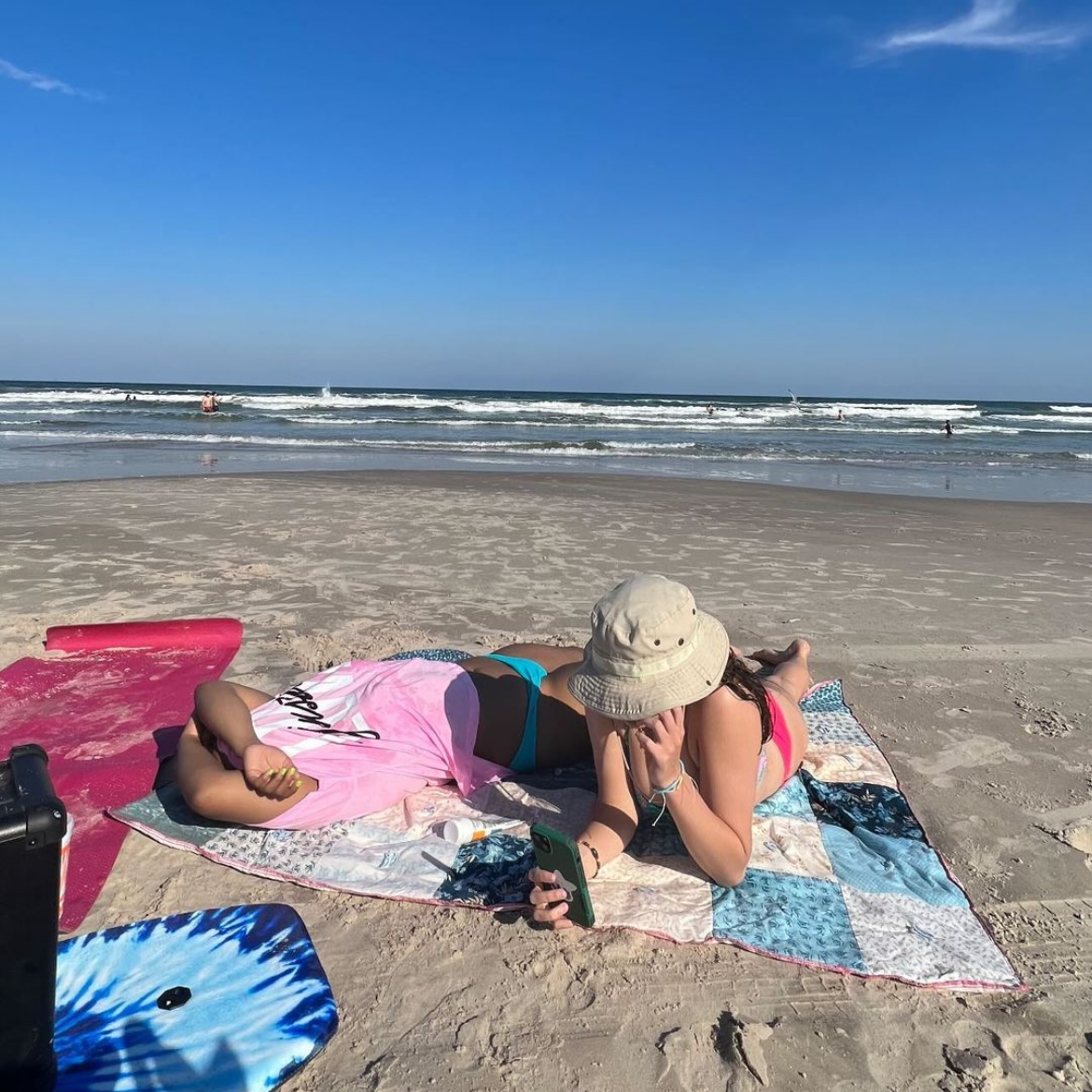

Credit
Produced by J’Lauren Thomas
Contributions from Lauren Fowlks
Photos by Lauren Fowlks
Sound Clips by Lauren Fowlks
Music from C418-MinecraftSoundtrackVolumeAlpha
